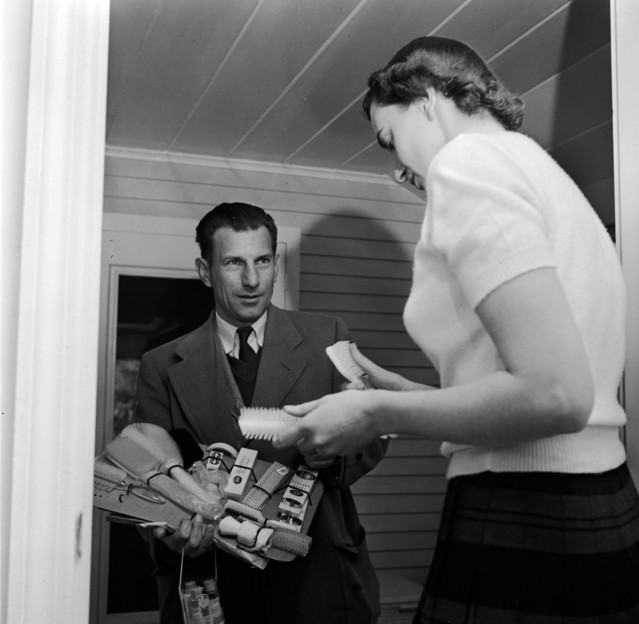The Fuller Brush Man, modest an individual though he was, disappeared for the same reason that grandiose World Fairs no longer resonated: The developed world became mobile, and it’s wasn’t necessary for anyone or anything to come to our doors anymore, even to our town. Nobody was home.
Now mobility itself isn’t even very necessary. We’re home, but it all reaches us through tubes and wires, and soon drones. So places we use to drive to, like this one and this one, keep disappearing. We don’t need here or there today because we’re everywhere and nowhere. A segment from Daniel H. Pink’s To Sell Is Human about the birth of the Fuller Brush company, posted on the very fun Delancey Place blog:
“It all began in 1903, when an eighteen-year-old Nova Scotia farm boy named Alfred Fuller arrived in Boston to begin his career. He was, by his own admission, ‘a country bumpkin, overgrown and awkward, unsophisticated and virtually unschooled’ — and he was promptly fired from his first three jobs. But one of his brothers landed him a sales position at the Somerville Brush and Mop Company — and days before he turned twenty, young Alfred found his calling. ‘I began without much preparation and I had no special qualifications, as far as I knew,’ he told a journalist years later, ‘but I discovered I could sell those brushes.’
‘After a year of trudging door-to-door peddling Somerville products, Fuller began, er, bristling at working for someone else. So he set up a small workshop to manufacture brushes of his own. At night, he oversaw the mini-factory. By day he walked the streets selling what he’d produced. To his amazement, the small enterprise grew. When he needed a few more salespeople to expand to additional products and new territories, he placed an ad in a publication called Everybody’s Magazine. Within a few weeks, the Nova Scotia bumpkin had 260 new salespeople, a nationwide business, and the makings of a cultural icon.”
Tags: Alfred Fuller

